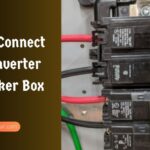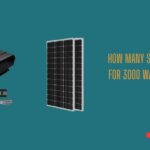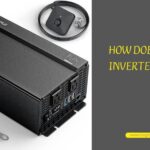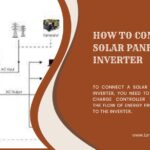Why is my solar inverter beeping? Resolve the issue with these expert tips!
Your solar inverter may be beeping due to a fault or error in the system. There are several potential reasons for this beeping sound, such as a low battery voltage, an overload condition, or a malfunctioning component.
When your solar inverter starts beeping, it is essential to identify the cause and take appropriate action. Ignoring the beeping sound could lead to further damage and worsen the situation. By addressing the issue promptly, you can ensure the efficient and uninterrupted operation of your solar power system.
We will discuss the common causes of solar inverter beeping and provide guidance on troubleshooting and resolving the problem.
Understanding The Solar Inverter Beeping Issue
Understanding the Solar Inverter Beeping Issue Have you ever wondered why your solar inverter suddenly starts beeping? It can be quite frustrating and alarming, especially if you rely on your solar energy system. Don’t worry, though; in this article, we will dive into the common reasons behind solar inverter beeping and help you understand what might be causing this issue.
Common Reasons Behind Solar Inverter Beeping
Overheating brought on by prolonged exposure to sunlight is one of the most frequent causes of your solar inverter beeping. Your inverter’s purpose is to convert the DC (direct current) power that your solar panels produce into usable AC (alternating current) power for your home.
What Size Cable from Solar Panel to Inverter
However, prolonged exposure to intense sunlight can cause the inverter to overheat, triggering the beeping alarm. To prevent overheating, ensure that your inverter is installed in a well-ventilated area, away from direct sunlight. You can also consider installing a fan or heat sink to dissipate excess heat from the inverter. Regular maintenance, such as cleaning the inverter’s cooling fins and checking for obstructions, can also help prevent overheating issues.
Grid Connection Issues
Another common reason for your solar inverter to beep is grid connection issues. Your inverter needs a stable and reliable connection to the electrical grid to function properly. If there is a disruption or loss of grid connection, the inverter may start beeping to alert you of the issue.
There are several potential causes for grid connection issues, such as a power outage, a fault in the grid, or a problem with the electrical wiring in your home. To troubleshoot this problem, you can check the main grid connection for any visible damage or loose connections. If the issue persists, reach out to a professional electrician to diagnose and resolve any grid connection issues.
Faulty Wiring Or Loose Connections
Faulty wiring or loose connections can also trigger the beeping alarm of your solar inverter. The electrical wiring connecting your solar panels, inverter, and electrical panel must be properly installed and secured. Loose connections or damaged wiring can disrupt the flow of electricity, leading to irregularities that can cause the inverter to beep.
Inspect the wiring and connections for any visible signs of damage or looseness. If you are not experienced with electrical work, it’s best to consult a licensed electrician to ensure a safe and proper resolution to any wiring or connection issues.
Low Battery Voltage
Lastly, low battery voltage can be another reason why your solar inverter is beeping. If the battery connected to your solar system is not providing enough voltage, the inverter may detect this as an issue and sound the alarm. This could be due to a faulty battery, insufficient charging, or a problem with the battery connection.
To address low battery voltage, you can check the battery’s charge level and ensure that it is properly connected to the solar system. If the battery is old or damaged, it may need to be replaced. Consulting a professional solar technician can help you diagnose and resolve any battery-related issues effectively. In conclusion, understanding the common reasons behind your solar inverter’s beeping is crucial for maintaining the optimal performance of your solar energy system.
Be sure to keep an eye out for overheating, grid connection issues, faulty wiring or loose connections, and low battery voltage. Regular maintenance and timely professional assistance will help ensure the smooth operation of your solar inverter, minimizing any disruptions or frustrations along the way.
Troubleshooting Steps For Resolving The Beeping Issue
If your solar inverter is beeping, it’s important to address the issue promptly to ensure the smooth operation of your solar system. While the beeping sound can be concerning, it often indicates a problem that can be diagnosed and resolved with a few troubleshooting steps. Here’s a guide to help you identify and resolve the underlying issues causing your solar inverter to beep.
Step 1: Checking For Overheating Signs And Addressing The Issue
One common cause of a beeping solar inverter is overheating. Excessive heat can lead to malfunctioning of the inverter and trigger the alarm. To resolve this issue, follow these steps:
Monitoring the solar inverter temperature
Keep an eye on the temperature of your solar inverter. Most inverters have built-in temperature sensors or displays. If the temperature is significantly higher than normal, it may be causing the beeping. Consult your inverter’s user manual to determine the ideal operating temperature range.
Taking measures to reduce heat buildup
Ensure that your solar inverter is properly ventilated and not exposed to direct sunlight or other heat sources. Clear any obstructions around the inverter that might impede airflow. Additionally, consider installing a cooling fan or shade to help dissipate heat.
Step 2: Diagnosing And Resolving Grid Connection Issues
A poor or faulty grid connection can also be a reason for your solar inverter to beep. Follow these steps to diagnose and resolve the issue:
Verifying the grid supply and inverter connection
Check if your solar system is receiving a stable grid supply. Ensure that the inverter is properly connected to the grid and that there are no loose or damaged cables. Inspect for any visible signs of damage, such as loose connectors or corrosion.
Resetting the grid connection, if necessary
If you find any anomalies in the grid connection, try resetting the connection by switching off the inverter and disconnecting it from the power source. Wait for a few minutes before reconnecting and restarting the inverter. This can help eliminate temporary connection issues.
Step 3: Inspecting For Faulty Wiring Or Loose Connections
Faulty or loose electrical wiring can cause your solar inverter to beep consistently. Follow these steps to inspect and address wiring issues:
Conducting a visual inspection of the wiring
Physically examine the wiring connected to your solar inverter. Look for any signs of fraying, damage, or loose connections. Examine the junction boxes, fuses, and breaker panels for any visible faults.
Tightening any loose connections or replacing damaged wires
If you notice any loose connections, tighten them carefully using the appropriate tools. If you come across damaged wires, it’s essential to replace them promptly to prevent further issues. Ensure you follow proper safety precautions and consult a professional if needed.
Step 4: Dealing With Low Battery Voltage
Low battery voltage can trigger the beeping alarm on your solar inverter. Here’s what you can do:
Checking the battery charge levels
Inspect the charge levels of your solar system’s batteries. If they are low, it may indicate a charging or battery health problem. Verify the connections and consider recharging or replacing the batteries as needed.
By following these troubleshooting steps, you can effectively address the beeping issue with your solar inverter. If the problem persists or you are unsure of performing troubleshooting steps on your own, you should contact a professional solar technician for further assistance.
Seeking Professional Help For Complex Beeping Issues
When To Consult A Professional Solar Inverter Technician
While minor beeping issues with your solar inverter can often be resolved with simple troubleshooting steps, there are certain cases where seeking professional help becomes necessary. Consulting a professional solar inverter technician can help identify and address the root cause of complex beeping issues, ensuring optimal performance and avoiding potential damage. In this section, we will explore various scenarios where it is advisable to seek professional assistance.
Software- Or Firmware-related Problems
If you have performed basic troubleshooting for your beeping solar inverter and the issue persists, it could indicate a software or firmware-related problem. These complex issues sometimes require specialized expertise to resolve.
A professional solar inverter technician can analyze the software or firmware, check for compatibility issues, and update the system to the latest version if needed. Their advanced knowledge and access to diagnostic tools enable them to tackle these complex coding-related problems effectively.
Inverter Hardware Malfunction
In some cases, continuous beeping from your solar inverter can indicate a more significant problem with the hardware. While you can visually inspect for any visible damages or loose connections, it is recommended to involve a professional solar inverter technician for a comprehensive diagnosis.
They have the expertise to identify internal components that may have malfunctioned, such as faulty capacitors or burned-out circuit boards. By accurately pinpointing the hardware malfunction, they can replace the defective parts and restore the smooth operation of your solar inverter.
Warranty And Servicing Considerations
When faced with complex beeping issues, it is essential to check your solar inverter’s warranty and servicing coverage. Many manufacturers provide warranties that cover repairs or replacements within a specific period.
By involving a professional technician, you can ensure that the repair process adheres to the warranty guidelines, preventing any potential voids in coverage. Additionally, regular servicing by a qualified technician can help identify and resolve any underlying issues before they escalate, maximizing the lifespan of your solar inverter and minimizing the risk of future beeping problems.
Preventive Maintenance And Tips For Avoiding Inverter Beeping
If you have a solar power system installed at your home or business, you may have come across a situation where your solar inverter starts beeping. This beeping sound is an indication of an issue with your solar system. Ignoring it can lead to bigger problems and potential power interruptions.
To avoid this inconvenience, it’s important to follow regular preventive maintenance practices and take some simple steps to keep your solar inverter functioning at its optimal level.
Regular Monitoring And Maintenance Practices
Regular monitoring and maintenance of your solar power system can go a long way toward preventing inverter beeping issues. This involves keeping an eye on your solar system’s performance to ensure it is producing the expected amount of electricity. It is also advisable to check for any error messages displayed on the inverter’s screen. Should any issues be identified, contacting a professional solar technician for troubleshooting and repairs is recommended.
Keeping Panels And Inverter Clean
Regularly cleaning your solar panels and inverters is crucial for maximizing their efficiency and avoiding potential issues. Dust, debris, and bird droppings can accumulate on the surface of your panels, reducing their ability to absorb sunlight and decreasing overall system performance. Regularly inspecting and cleaning panels, as well as ensuring the inverter is free of any dust or dirt buildup, can help prevent beeping and extend the lifespan of your solar power system.
Checking For Shading Or Obstructions
Shading or obstructions on your solar panels can significantly impact their performance and trigger beeping from the inverter. It’s important to regularly check for any objects that may be blocking sunlight from reaching your panels, such as tree branches or nearby buildings.
If shading is an issue, trimming trees or repositioning your panels may be necessary to ensure uninterrupted sunlight exposure. By proactively addressing shading concerns, you can keep your solar system running smoothly and prevent unnecessary beeping alarms.
Monitoring System Performance Regularly
Frequent monitoring and tracking of your solar system’s performance are essential for the early detection of any potential issues. This includes regularly checking energy generation patterns, analyzing the data provided by your solar monitoring system, and comparing it to expected performance levels.
Any unusual fluctuations in energy generation or significant reductions in output may indicate a problem with your inverter. Addressing these issues promptly can help prevent beeping alerts and ensure the long-term health and efficiency of your solar power system.
Tips For Long-term Inverter Health And Efficiency
In addition to regular monitoring and maintenance, there are several tips you can follow to optimize the health and efficiency of your solar inverter.
Optimal Installation Location
Choosing the right location for your solar inverter is crucial. It should be installed in a well-ventilated area away from direct sunlight and extreme temperatures. An adequately ventilated space will prevent the inverter from overheating and ensure optimal performance.
Inverter Sizing Considerations
Properly sizing your solar inverter based on your system’s capacity is essential. Oversized or undersized inverters can lead to inefficiency and potential issues. Consulting with a professional solar installer can help you determine the right inverter size for your specific needs.
Following Manufacturer Guidelines and Recommendations
Lastly, it is important to closely follow the manufacturer’s guidelines and recommendations for operating and maintaining your inverter. Each model may have specific requirements, and adhering to these guidelines will help prevent avoidable problems and keep your inverter functioning optimally.
By implementing these preventive maintenance practices and following these tips, you can avoid the frustration of inverter beeping alarms and ensure the long-term reliability and efficiency of your solar power system.
Frequently Asked Questions On Why Is My Solar Inverter Beeping
How Do I Stop My Inverter From Beeping?
To stop your inverter from beeping, consult the user manual for troubleshooting steps. Check if there are any fault codes displayed on the screen and address the issue accordingly. Ensure that the inverter is receiving proper voltage and the battery is functioning correctly.
Contact customer support if the problem persists.
What Does It Mean When the Inverter Beeps?
When the inverter beeps, it indicates an issue with the system. The beeping sound acts as an alert to notify you of a problem. It could indicate a fault, a low battery, or other technical problems that require attention. Contact a professional to diagnose and fix the issue promptly.
Why is my inverter beeping continuously and not working?
The continuous beeping and non-functioning of your inverter could be due to various issues, such as low battery voltage, overload, or a faulty component. Check the battery voltage, remove any overload, and contact a professional if the problem persists.
Why Are My Inverter Ups Beeping Continuously?
Continuous beeping in your inverter UPS indicates an issue like overload, battery low failure, or fault in the system. Check connections, ensure the battery is not drained, and consult the user manual or contact the manufacturer for troubleshooting steps.
Conclusion
To conclude, understanding why your solar inverter is beeping is crucial for maintaining the optimal performance of your solar panel system. By identifying the cause of the beeping and taking appropriate action, you can avoid potential system failures or issues.
Regular monitoring and professional check-ups are vital for ensuring the longevity and efficiency of your solar inverter. Stay vigilant and proactive to enjoy the full benefits of your solar investment for years to come.




